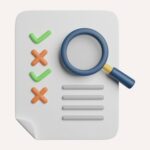Have you ever in a position in your life where you run out of money at the end of the month? Do you find it difficult to save for emergencies?
It’s pretty much likely that you believe you don’t make enough money, but setting up a budget could resolve the majority of your financial difficulties.
So, here’s a guide on making a budget that works for you.
Importance of Budgeting for Personal Finance
Budgeting is an important and critical element of personal finance as it allows people to manage their money more efficiently.
A personal budget is a plan that goes into detail as to how much money a person has coming in and going out, as well as how they intend to spend it.
Regular and consistent budgeting can assist people in turning their finances around and starting to accumulate wealth.
Budgeting is crucial for several reasons, one of which is that it promotes financial stability.
A personal budget will make it super easy for you to pay your bills on time, create an emergency fund, and save money for major purchases like a home or car loan by tracking expenses and sticking to a budget plan.
Budgeting also allows people to keep track of their expenditures, savings, and overall financial health.
Moreover, budgeting may assist people in establishing long-term financial goals and attaining financial independence and freedom.
It assists people with spending within their means, saving for retirement, and creating an emergency fund.
Those who manage their spending can ensure that their expenses are fewer than their income, which is crucial for avoiding debt and establishing financial stability.
Budgeting is critical for personal finance because it enables people to efficiently manage their money, generate financial stability, accomplish long-term financial objectives, and avoid debt.
Individuals may pay bills on time, develop an emergency fund, and save for significant costs by monitoring their spending and sticking to a budget.
Consistent budgeting may assist people in turning their finances around and beginning to develop wealth.
Understanding Your Income and Expenses
Identifying revenue sources, Tracking expenses, and categorizing expenses are all part of understanding your income and expenses.
1) Identifying revenue sources: This entails recording all sources of income, such as wages, contractor payments, tips, child support, and investments.
2) Expense tracking: It entails keeping track of all costs, such as housing, utilities, insurance, and repairs.
3) Categorizing expenses: This entails categorizing expenses such as accommodation, transportation, food, and entertainment. This helps to pinpoint places where costs may be cut.
These concepts are prevalent in personal finance and also applicable to corporations, where income statements are used to monitor revenue and spending over time.
Setting Financial Goals
Setting financial goals is an essential part of budgeting.
Financial goals can be divided into two categories: short-term and long-term. Short-term goals are generally accomplished in a year or less, but long-term goals might take years or even decades to complete.
Paying off credit card debt, saving for a trip, or completing small house renovations are all examples of short-term objectives. Saving for retirement, paying off a mortgage, or launching a company are all long-term goals.
It is critical to balance short-term and long-term goals and prioritize them according to their significance.
Prioritizing goals entails determining which objectives are the most essential and allocating resources appropriately. Essentials such as food and shelter should take precedence over wishes such as vacation or personal items.
To meet unforeseen costs, emergency savings should also be prioritized. Breaking down enormous objectives into smaller, more urgent ones is always a smart idea. This makes them simpler to attain and allows for better tracking of progress.
Setting wise objectives is another critical stage in establishing financial goals. Specific, measurable, attainable, relevant, and time-bound objectives are known as SMART goals.
Instead of just saving money, a SMART goal may be to save $1,000 each month for a down payment on a home within the next two years. SMART goals aid in the clarification of what has to be done, how it will be done, and when it will be done.
Creating a Budget Plan
Creating a budget plan entails numerous phases, including selecting a budgeting system, allocating income to spending and savings, and setting aside money for emergencies.
The first step is to choose which budgeting approach works best for you.
To begin with, there are several websites, budgeting applications, and resources available, such as spreadsheets or templates.
The 50/30/20 rule is a common budgeting method that advocates allocating 50% of your income to requirements, 30% to desires, and 20% to savings and debt reduction.
Yet, the best budget planner is one you can live with, so adjust your strategy as necessary.
The next stage is to divide your income between spending and savings. Begin by determining your net income, which is your earnings minus taxes.
Then subtract your fixed expenses, which include rent or mortgage payments, utilities, and insurance.
Determine your variable costs, which include things like food, entertainment, and transportation.
Prepare for one-time expenses like auto maintenance or medical expenditures. Next, compute your profit and loss and sketch down your projected future budget effects.
The next stage is to set up a reserve money. A contingency fund is an emergency reserve that may assist you in covering unforeseen expenditures such as job loss or medical emergency.
Saving three to six months’ worth of living costs in a contingency fund is recommended by experts.
Begin by saving a little amount of money each month and gradually increasing it over time.
Sticking to Your Budget
Making a budget is a vital step in reaching financial objectives, but sticking to it may be difficult.
Here are some suggestions for remaining on track, modifying the budget as required, celebrating victories, and learning from failures.
A. Tips for Staying on Track
- Establish processes that will help you succeed.
- Have a constant relationship with your budget.
- Set yourself reminders.
- Recognize and avoid spending triggers.
- Keep track of your purchases.
- First, pay your savings “bill.”
- Be aware of your earnings.
B. Revising the Budget as Needed
- Be adaptable and open to change your budget as required.
- Evaluate your budget on a regular basis and make modifications as needed.
- Have reasonable expectations and keep to your budget.
C. Celebrating Small Successes and Learning from Mistakes
- Rejoice in your accomplishments.
- Learn from your errors and make necessary budget adjustments.
- Establish monthly, quarterly, and yearly objectives.
It is possible to adhere to a budget and accomplish financial objectives by following these guidelines.
It requires skill and consistency, but the rewards are enormous, including fewer financial stress and anxiety over expenses.
Using Budgeting Tools and Resources
There are several budgeting tools and applications available to assist with financial management.
Some of the best budgeting tools and applications are:
- Mint: a comprehensive budgeting app that tracks spending and assists in budget creation
- YNAB: a hands-on zero-based budgeting app that assists users in tracking expenses and planning for the future; and
- Goodbudget: a hands-on envelope budgeting app that assists users in allocating funds to various categories.
- EveryDollar: a simple zero-based budgeting program that helps users manage costs and prepare for the future
These apps allow you to keep track of your income and spending, make budgets, and plan for the future. Some are free, while others demand a monthly subscription.
Final Steps
Budgeting is an important part of personal finance since it allows you to have control over your money.
If you understand your income and expenditures, set financial goals, and construct a budget plan, you may make financial decisions ahead of time, cover all of your needs, pay off debt, save for the future, and afford enjoyable spending.
Budgeting also helps you to monitor your expenses and save more money.
It may also help you make better financial decisions, prepare for emergencies, get out of debt, and remain focused on long-term financial goals and objectives.








